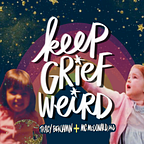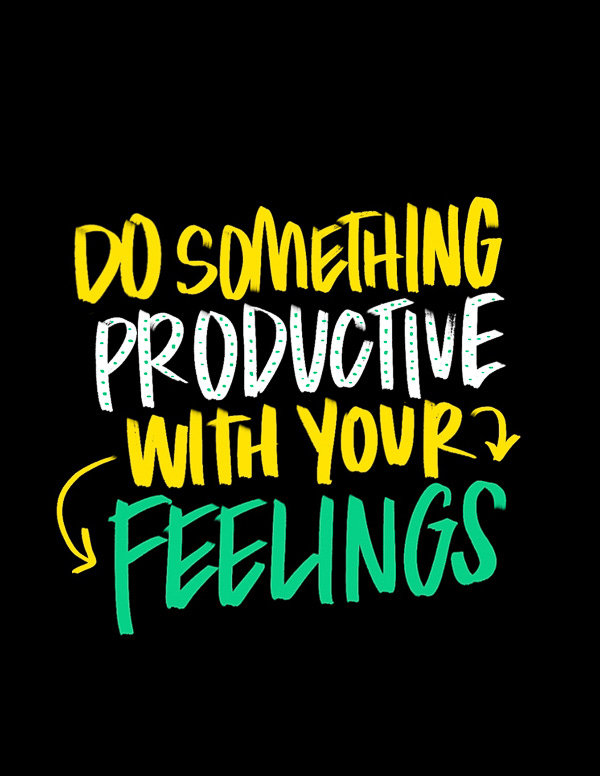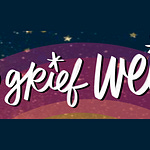Hi Friends, MC here! So, you’re probably here because you’ve had a loss (duh, MC). I’ve talked almost every episode (maybe like 6 times per episode) about how grief is made more difficult in our culture because we live in a grief phobic culture and grief needs to be witnessed in order to be healed. So that means you most likely need a therapist. But how on earth do you find one?
Let’s start here. What on earth should you look for in a therapist in general? First, here are a couple of general points.
ALL the research shows that the success or failure of any psychological intervention hinges on the quality of the relationship between the therapist and patient. Here are a couple of questions to ask yourself:
Do you feel safe sharing without fear of judgment?
Do you feel like you can be open without editing yourself?
Do you feel heard (rather than dismissed or minimized?)
Do you feel safe/calm in your body?
Bring it into the room: In general, a therapeutic relationship is one where you get to bring everything you are thinking and feeling to the table. We don’t always do this in our other relationships, so it can be foreign but also incredibly healing to do this in your relationship with your therapist. If there is something that you don’t like, or would like to do differently, say so!
For example: Tracy likes homework in therapy! That’s totally fine, and it’s also totally fine if you don’t want homework. If you’re like Tracy and you’re not getting homework in therapy, bring it into the room and ask!
Ok, now that we’ve got that out of the way, let’s move into what therapies are most common when you’re dealing with grief. Here are some of the most common therapies used for grief. There are many more, so this is not an exhaustive list! But if you’re just getting started and want to know what is out there, here are some things:
Cognitive Behavioral Therapy (CBT) -
Goal: To identify and change negative thought patterns and behaviors. This can help people process their grief in a structured way and develop positive coping strategies.
Acceptance and Commitment Therapy (ACT) -
Goal: in ACT, grief is considered a normal human emotion, and suffering comes when we do not accept these emotions. The goal of ACT is to accept things as they are rather than trying to control them.
Complicated Grief Therapy (CGT) -
Goal: includes techniques similar to prolonged exposure (repeatedly telling the story of the death and exposure activities). The treatment also involves focusing on personal goals and relationships
Grief Groups -
Goal: to provide a space for individuals to share their experiences with others who are also grieving. Offers mutual support, reduces feelings of isolation, and provides a sense of community.
Mindfulness and Meditation -
Goal: to teach individuals to focus on the present moment and manage their emotions through mindfulness techniques. It can reduces stress, enhances emotional regulation, and promote a sense of peace and acceptance.
Less Commonly Suggested InterventionsArt Therapy -
Goal: to use creative expression to help individuals process their emotions and experiences. Can provide an alternative means of expression for those who may find it difficult to articulate their grief verbally.
Ecotherapy -
Goal: involves engaging with nature to promote healing and well-being. Also reduces stress, improves mood, and provides a calming environment for reflection and healing.
Dance/Movement Therapy -
Goal: to use movement and dance to help individuals express and process their grief. Enhances physical and emotional expression, improves mood, and provides a sense of release.
Bibliotherapy -
Goal: reading and discussing literature related to grief and loss. Provides insights, offers different perspectives, and helps individuals feel less alone in their experience.
Where do you even go to find a therapist? Now that you have all of this information about what’s on offer, where do you go to find it? There are lots of resources out there and many of them depend on where you live.
Word of mouth - Most therapists get a large portion of their clientele from word of mouth. If you have friends and family members who have had great therapists, ask them for a referral! If you don’t feel comfortable asking around, that’s ok too.
Psychology Today - Psychology Today is a great resource for all things mental health. There are two great things about their directory. First, there are filters that you can use to find clinicians in your zip code who take your insurance and speak your preferred language. Second, every single person on their has been vetted. When I signed up to be on it, I think I had to send transcripts all the way back to high school.
Grief.com - This is a resource and directory for grief coaches, therapists, and educators that was set up by David Kessler. Like psychology today, everyone on grief.com has gone through Kessler’s grief training, so anyone who you find on here has a baseline understanding of grief.
Couple of other things we talked about:
Not every modality is for every person. Please please please listen to yourself. If you are in a therapeutic setting and whatever is going on does not speak to you, that does not mean that something is wrong with you. It means this is not the therapist/modality for you at this moment.
It’s totally ok to reject or put off things that everyone keeps telling you helped them. They might be things that help you at a different moment in your grief, or they just might not be for you.
For example, meditation is great and we know it! But it is not the right tool for every person at every moment. There are even studies that show that meditation is contraindicated for things like anxiety and PTSD.
Yoga is another example! Tracy and I both have had moments where yoga was really wonderful for us and moment where we had to stop completely.
We also both avoided the grief bible, the book that every single person will recommend to you when you are grieving, which is The Year of Magical Thinking by Joan Didion. Didion is my idol and I have read everything she wrote, but that book was not for me for the first couple of years after my parents died. And that’s ok!
Tracy here to remind you that not all of your experiences can be communicated with language. Art can help you express so much more!
Do something productive with your feelings- that’s what my Mom taught me!
Here are some of the posts I (Tracy) did for Skillshare that boosted my interest in art therapy- Bullet Journaling, Watercolor, and Keeping a Sketchbook!
DANCE is also a big part of working through grief.
We LOVE The Fitness Marshall. You can see some favorite workout videos here!
Wanna take a break for a second and ride a nostalgia wave? Look at the life of a Doozer!
A Doozer is as a Doozer Does!
We recorded this a few weeks before Shelley Duvall and Richard Simmons passed. How weird is that? Did you also watch Faerie Tale Theatre?
Want to share your grief stories? We’d love to hear from you!
Message us here or at keepgriefweird@gmail.com, and tag us on Instagram @keepgriefweird and use our hashtag- #keepgriefweird to share your weird griefy things!
























